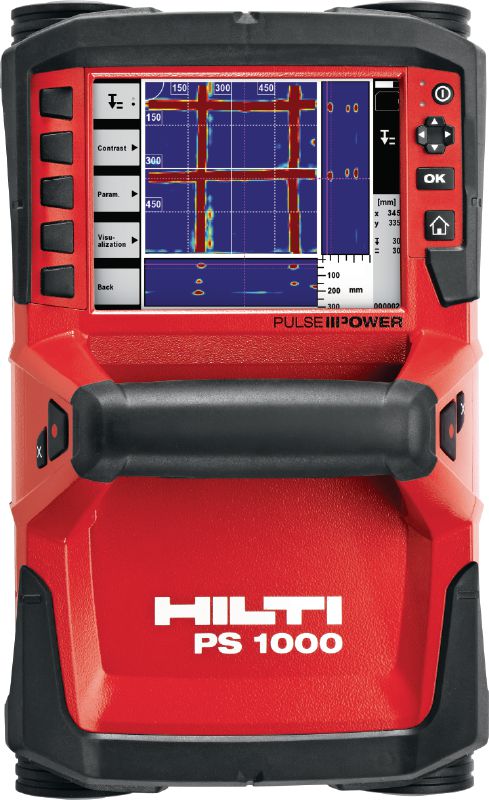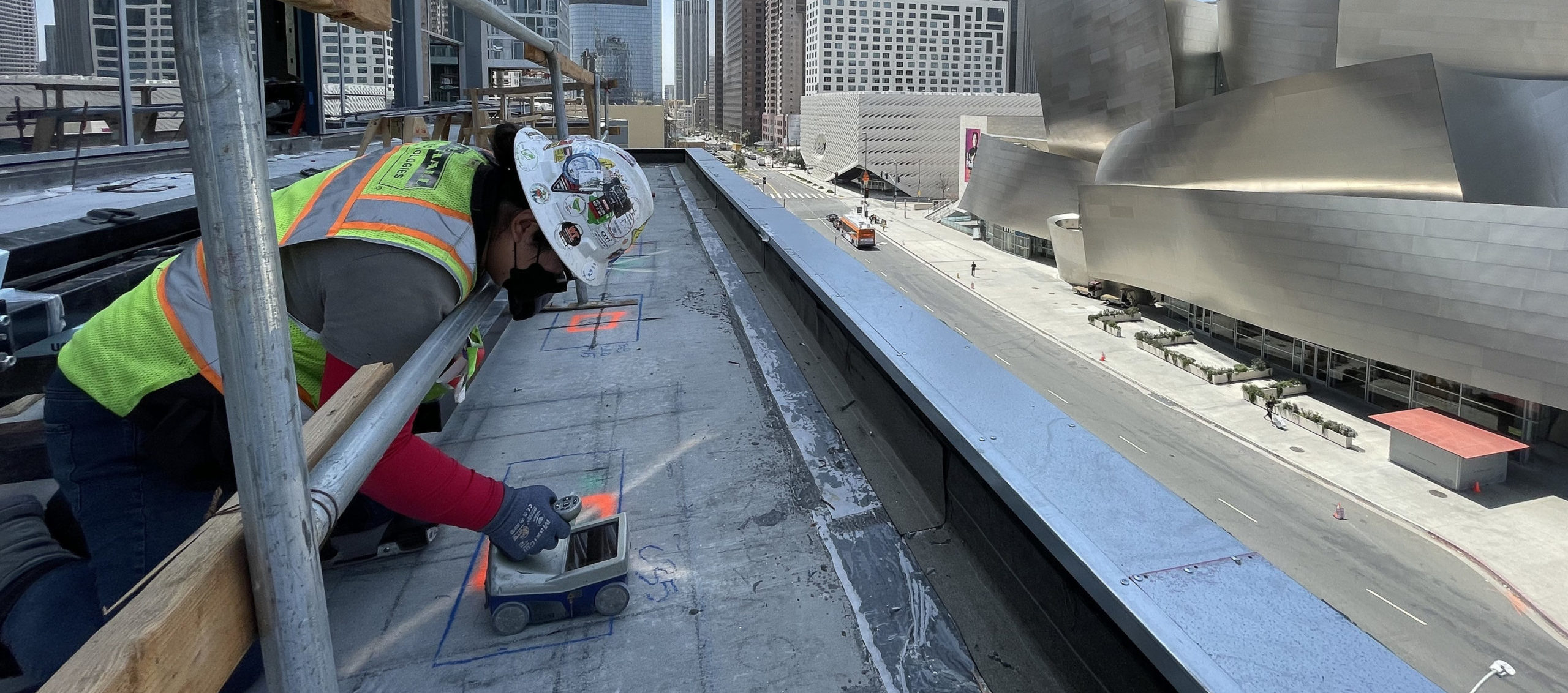RainierGPR Concrete Scanning Demystified: Whatever You Need to Know
RainierGPR Concrete Scanning Demystified: Whatever You Need to Know
Blog Article
Harness the Strategic Edge of Concrete Scanning for Unparalleled Job Success and Top Quality Assurance
In the world of modern-day building and construction and framework growth, the application of concrete scanning innovation has actually become a critical tool for guaranteeing job success and keeping quality requirements. This cutting-edge method supplies a tactical side by offering necessary understandings into the structural honesty of concrete aspects, thereby allowing informed decision-making throughout the task lifecycle. By delving into the midsts of concrete make-ups and revealing hidden anomalies, stakeholders can proactively resolve possible threats, simplify procedures, and optimize source appropriation. Nonetheless, truth power of concrete scanning lies not just in its capacity to improve task end results but additionally in its ability to reinvent standard methods, setting a brand-new criteria for precision and efficiency in the construction market.
The Significance of Concrete Scanning
Concrete scanning is an important action in building and construction projects to make sure the safety and security and stability of frameworks. By making use of numerous scanning modern technologies such as Ground Passing Through Radar (GPR) and electro-magnetic induction, building and construction groups can non-destructively review the subsurface of concrete frameworks to recognize possible threats like rebar, avenues, or post-tension cables. This information is essential for job service providers, managers, and designers to make enlightened decisions and avoid expensive mistakes during the construction process.
One of the main reasons concrete scanning is so important is its capability to avoid accidents and injuries on the building website. Accidentally cutting through a real-time electric channel or harmful post-tension cable televisions can have catastrophic effects, not only in terms of safety and security however also in terms of task delays and financial effects. By performing detailed concrete scanning before any kind of boring, cutting, or coring tasks, building groups can alleviate risks and produce a safer working atmosphere for everyone entailed.
Along with security considerations, concrete scanning also plays a key role in making certain the long-lasting toughness and top quality of the structure. By finding any type of abnormalities or defects hidden below the surface area, such as gaps or delamination, early intervention can be implemented to attend to these concerns prior to they escalate into more substantial troubles. Ultimately, investing in concrete scanning is an aggressive measure that can save time, cash, and sources in the future, while additionally supporting the highest possible requirements of building and construction excellence.
Advanced Modern Technology for Precise Outcomes

Additionally, 3D scanning modern technologies provide a comprehensive sight of the subsurface environment by creating in-depth digital models. These designs provide useful insights right into the architectural stability of concrete components and assist in recognizing prospective weak points before they rise right into significant concerns. By integrating these innovative innovations right into concrete scanning practices, building groups can streamline process, minimize job hold-ups, and make certain the total quality and success of the project. The precision and efficiency provided by these tools contribute dramatically to the task's success by facilitating informed decision-making and improving quality control measures.
Enhancing Job Performance and Timelines

Moreover, concrete scanning enables groups to recognize prospective threats and architectural weaknesses early, permitting prompt removal and preventing mishaps that could thwart project timelines. The real-time data given by scanning devices helps with educated decision-making, resulting in smoother control among various professions and stakeholders. This enhanced cooperation reduces conflicts, boosts productivity, and ultimately speeds up task distribution.
In addition, by proactively resolving issues with concrete scanning, building and construction teams can follow timetables better, decrease downtime, and optimize source allocation. The capability to spot concealed obstacles and verify architectural honesty successfully adds to general project performance and timelines, making sure successful end results and customer contentment.
Ensuring Security and Risk Reduction

Threat mitigation methods can be improved with the in-depth info offered by concrete scanning, enabling task groups to make educated decisions that reduce the likelihood of unanticipated events. Additionally, by properly mapping out subsurface problems, service providers can prevent costly rework, hold-ups, and damage to existing structures, further adding to overall task safety and security and success. Applying concrete scanning as a regular practice not just makes certain a more secure workplace but likewise imparts self-confidence in stakeholders regarding the project's commitment to quality and risk management.
Quality Control Via Concrete Scanning
Concrete scanning plays an essential duty in upholding quality control standards within building tasks. By utilizing sophisticated scanning innovations such as Ground Penetrating Radar (GPR) and Concrete X-ray, job managers and designers can make certain the integrity and high quality of concrete frameworks. Via concrete scanning, possible defects, such as voids, fractures, or strengthening bar blockage, can be detected non-destructively, enabling for timely treatments to preserve the architectural honesty of the project.
Quality assurance through concrete scanning not only assists in determining existing problems however additionally enables proactive steps to avoid future problems that might endanger the safety and durability of the framework. By conducting thorough scans at essential stages of building, teams can confirm the accuracy of structural strategies, verify the positioning of essential components, and resolve any kind of inconsistencies promptly. This proactive approach minimizes rework, reduces costly delays, and eventually causes the shipment of top notch, sturdy structures that exceed or meet market criteria.
Verdict
Finally, concrete scanning plays a critical duty in making certain task success, efficiency, quality, next and security guarantee. By making use of innovative innovation for accurate results, building jobs can be completed with higher accuracy and within timelines. The tactical side offered by concrete scanning enables proactive risk reduction and boosts total job administration. Integrating concrete scanning right into building procedures is crucial for accomplishing Recommended Site unparalleled success and making sure top quality outcomes - RainierGPR Concrete Scanning.
In the world of modern building and facilities growth, the usage of concrete scanning modern technology has actually emerged as an essential device for ensuring project success and preserving top quality standards. By integrating these sophisticated modern technologies right into concrete scanning methods, building and construction teams can enhance operations, decrease job hold-ups, and ensure the overall quality and success of the project.Provided the imperative nature of job efficiency and timelines in building monitoring, the emphasis now shifts towards making sure safety and security and mitigating risks within the task setting.Concrete scanning plays a pivotal duty in upholding top quality guarantee criteria within building and construction tasks. By making use of advanced scanning technologies such as Ground Penetrating Radar (GPR) and Concrete X-ray, project managers and engineers can guarantee the integrity and high quality of concrete structures.
Report this page